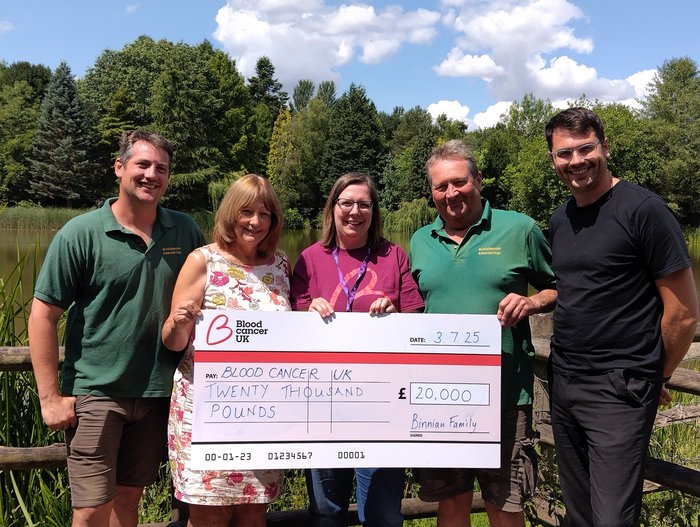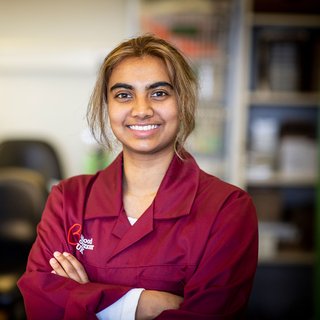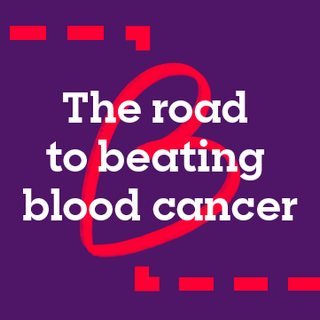“We’ve seen what progress in blood cancer means” say Bodenham Arboretum owners
The Midlands
Owners of Bodenham Arboretum in Worcestershire have been recognised by Blood Cancer UK after 20 years of continued support. James and Wendy Binnian’s commitment to the blood cancer research, which is the fifth most common cancer cause in the UK, is deeply personal.

A cheque presented to Blood Cancer UK from Bodenham Arboretum
For locals and tourists, the Arboretum is a tranquil, 170-acre woodland, incorporating lakes and rare trees. However, many may not know that when Wendy was just 16 and her brother Andy was 15, they lost their mother to an aggressive form of blood cancer - acute myeloid leukaemia (AML) - in the 1970s, at a time when treatment options were limited and research was still in its infancy.
Years later, in 1988, James’s younger brother Ryland was diagnosed with chronic myeloid leukaemia (CML). James donated his own bone marrow in an attempt to save his brother’s life. Sadly, his brother died in 1989.
We’ve lost people we loved – and that will always stay with us.
- Wendy Binnian
Thanks to advances in research, treatments have come a long way – and survival rates are improving, however blood cancer is still the UK’s third biggest cancer killer. And since the early 1990s, following the loss of James’s brother, the Binnian family has raised over £20,000 for Blood Cancer UK.
Their efforts include several memorable ‘band in the barn’ fundraisers, regular coffee mornings, and a popular ongoing second-hand book sale at the Arboretum, which have brought communities together in support of life-saving research.
Wendy Binnian said:
“We’ve lost people we loved – and that will always stay with us. But we’ve also seen what progress in blood cancer research means. It’s research that’s given people time and hopefully a cure. That’s why we do what we do – so that one day, no one will have to go through what we did.”
Both Wendy and James know what blood cancer takes, and their tireless fundraising efforts have made a significant impact in advancing research and supporting those affected by blood cancer.
- Blood Cancer UK's, Rachel Mann-Bradbury


